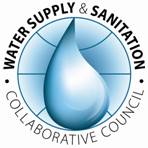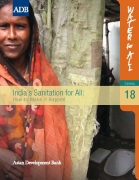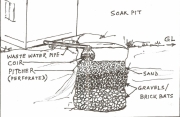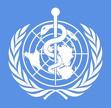Sanitation
WSSCC Expressions of interest for a country programme monitor for a sanitation and hygiene programme
Posted on 22 Nov, 2014 10:30 AM
The Water Supply & Sanitation Collaborative Council's (WSSCC) Global Sanitation Fund (GSF) calls for Expressions of Interest for a COUNTRY PROGRAMME MONITOR for a Sanitation and Hygiene Programme in India
WSSCC invites suitably qualified firms/organisations to express interest in the role of Country Programme Monitor (CPM) for the GSF grant programme in India. The initial contract duration is for 2 years, extendable up to 5 years upon satisfactory performance of services.
Round up of the water news for the week ending 31st May 2010 Six sewage treatment plants coming up in tsunamiaffected areas of Nagapattinam TN
Posted on 22 Nov, 2014 10:30 AMSome recent news items from the news feed that India Water Portal maintains at Newsrack: (http://newsrack.in/stories/arghyam/Water/55) :
- Six sewage treatment plants coming up in tsunami-affected areas of Nagapattinam, TN : http://www.thehindu.com/2010/05/31/stories/2010053157650600.htm
Indias Sanitation for All : How to make it happen- An ADB report
Posted on 22 Nov, 2014 10:30 AM This discussion paper by ADB, examines the current state of sanitation in India in the context of the Millennium Developmental Goals, which call for a 50% reduction in the proportion of people without sanitation by 2015 and India's goal of providing Sanitation for All by the 2012.
This discussion paper by ADB, examines the current state of sanitation in India in the context of the Millennium Developmental Goals, which call for a 50% reduction in the proportion of people without sanitation by 2015 and India's goal of providing Sanitation for All by the 2012.
The paper targets policy makers, governmental ministries, state and local governments, non-governmental organisations, developmental agencies and all those who are involved in the planning and implementation of sanitation policies in India. It makes a few recommendations for the successful implementation of sanitation efforts in India.The focus of these recommendations is on household sanitation, which includes safe disposal of human excreta, as measured by household ownership of a sanitary latrine and household access to drainage facilities.
School water sanitation and hygiene education Paper by Water for People
Posted on 22 Nov, 2014 10:30 AM This document by Water for People, emphasises the importance of appropriate sanitation coverage in schools that is gender sensitive and culturally acceptable to the needs of both boys and girl students, rather than the exclusive focus on adequacy of facilities.
This document by Water for People, emphasises the importance of appropriate sanitation coverage in schools that is gender sensitive and culturally acceptable to the needs of both boys and girl students, rather than the exclusive focus on adequacy of facilities.
It discusses the case of schools in rural areas in West Bengal where it was found that although the coverage of sanitation facilities was reasonable, lack of adequate availability of water, lack of consideration to student differences in terms of age and gender in the construction of latrines and drinking water facilities, poor systems of maintainence and disposal of wastes made the sanitation facilities inappropriate for use.
Rank of Indian cities on sanitation 200910 National Rating and Award Scheme for Sanitation in Indian Cities MoUD
Posted on 22 Nov, 2014 10:30 AMIn order to get a sense of the current status of sanitation in India's cities, a survey was initiated by the Ministry of Urban Development as a part of the National Rating and Award Scheme for Sanitation for Indian Cities. The methods used for the survey can be found on the Ministry of Urban Development website.
The findings and the rankings of the cities according to the survey found that the situation was grim with only 25 cities topping the list, while majority of the others lagged behind in terms of a number of sanitation parameters.
Sankalp awards 2010 winners SarvaJal Shramik 3S recognised for their double bottomlinesocial and financial returns
Posted on 22 Nov, 2014 10:30 AM
The Sankalp 2010 Awards and Investment Forum is an annual Intellecap initiative committed to catalyzing entrepreneurship in the social enterprise space. Sankalp actively facilitates collaboration between established and budding entrepreneurs, investors, thought leaders and sector stakeholders interested in contributing effectively towards this fledgling yet fast-growing industry.
With a strong focus on double bottomline (social and commercial) enterprises Sankalp, in its second edition, aims to accelerate investment in this space through the showcase of pioneering, sustainable and innovative enterprises capable of long term social impact. Sankalp's primary goal is of bringing together various stakeholders sharing a common conviction that capital should be invested to create multiple bottom-line returns (financial, social and environmental) and not exclusively financial (profit-maximizing) or social (philanthropic) returns.
Thus having successfully established a niche for itself; Sankalp has taken the lead in recognizing those businesses that have mastered the balancing act between the profit and social objectives. Sankalp 2010 Forum and Awards shall recognize, award and connect the most investible social MSMEs (Micro, Small and Medium enterprises) operating in 5 high impact sectors:{C}
Community led Total Sanitation newsletter for May 2010
Posted on 22 Nov, 2014 10:30 AM
Community Led Total Sanitation (CLTS) is an innovative methodology for mobilising communities to completely eliminate open defecation (OD).
Urban Population and WatSan: A brief status report by WaterAid 2009
Posted on 22 Nov, 2014 10:30 AMThis document by WaterAid India, India highlights the poor water and sanitation situation in the urban slums in India, in the context of rapid urbanisation and the increase in the number of slums and slum dwellers in the cities.
Bihar needs to build 6900 toilets a day to keep promise of total sanitation A survey report by WaterAid 2009
Posted on 22 Nov, 2014 10:30 AMThis brief report highlights the findings of an evaluation study conducted by WaterAid, India of the Total Sanitation Campaign (TSC), a national programme in India that ensures sanitation facilities in rural areas to eradicate open defecation. The study was conducted in the five states of Bihar, Chhattisgarh, Tripura, Karnataka and Haryana. This document highlights the findings of the evaluation study in the state of Bihar.
2010 UNWater Global Annual Assessment of Sanitation and DrinkingWater GLAAS
Posted on 22 Nov, 2014 10:30 AM
The Global Annual Assessment of Sanitation and Drinking-Water (GLAAS) is a UN-Water initiative implemented by the World Health Organization (WHO). The objective of UN-Water GLAAS is to provide policy makers at all levels with a reliable, easily accessible, comprehensive and global analysis of the evidence to make informed decisions in sanitation and drinking-water.
With over 2.6 billion people living without access to improved sanitation facilities, and nearly 900 million people not receiving their drinking-water from improved water sources, UN-Water GLAAS highlights where efforts stagnate in achieving the Millennium Development Goal Target 7.C.¬ to halve, by 2015, the proportion of people without sustainable access to safe drinking-water and basic sanitation. It also highlights the post-2015 challenges that need to be addressed by the United Nations system to collectively support its Member States.





